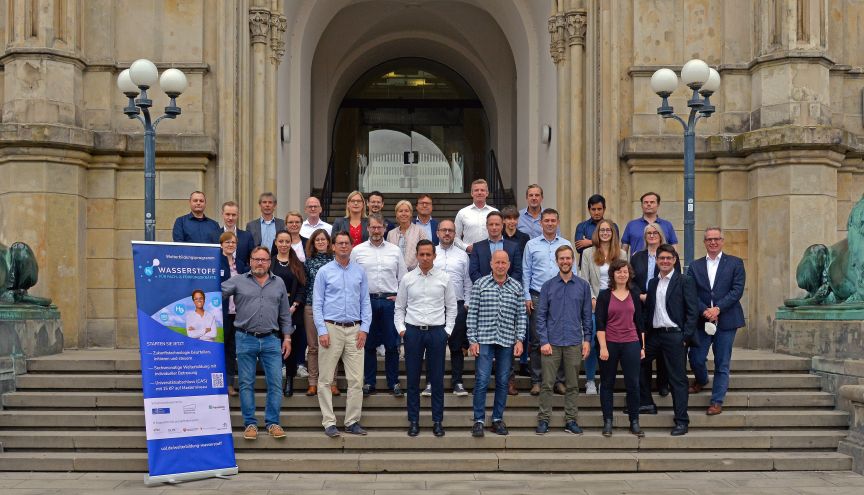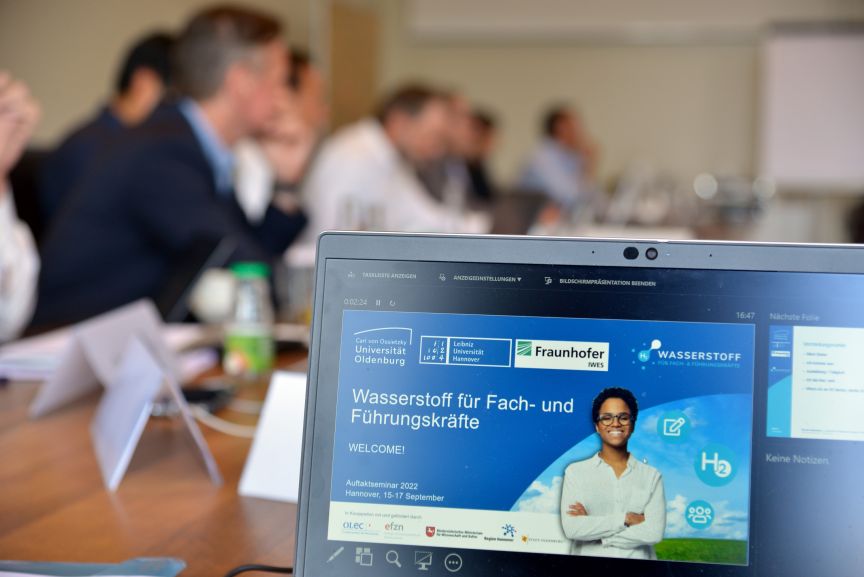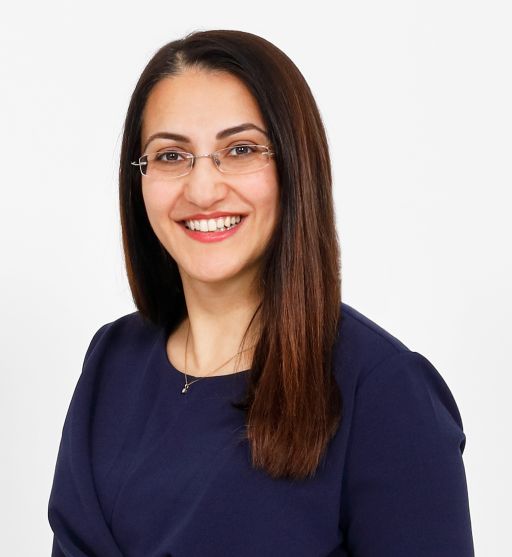Environmentally conscious further training: Hydrogen for specialists and managers
 Hannover Region
Hannover Region How can companies contribute to the energy transition? - The "Hydrogen for specialists and managers" project, which is funded by the Hannover Region Economic and Employment Promotion Agency , among others, trains qualified specialists for the use of green hydrogen in companies. The aim of the training program is to develop and pilot a qualification program for the hydrogen economy in Lower Saxony.
Leibniz University Hannover, Carl von Ossietzky University Oldenburg and the Fraunhofer Institute for Wind Energy Systems (IWES) are jointly running the training program. Under the leadership of Dr. Ruggero Capperucci, the project has not only been contributing to the success of the energy transition in Lower Saxony since September 2022, but also to strengthening the business location .
 Hannover Region
Hannover Region Dr. Capperucci, you have been in charge of the training program since March 2022. - Who is the program aimed at and what is the focus?
The program is aimed at professionals who come into contact with the various aspects of renewable energies in their field of work or who want to acquire the necessary expertise for their work in these areas. Our target group is broadly diversified. It is aimed at technicians working for industry as well as insurance and banking professionals who need to be able to assess the potential and risks of hydrogen projects. However, the target group also includes public administration specialists who have to assess such projects with a view to their approval.
Our aim is to train specialists and managers who are able to understand the various aspects associated with the realization of a hydrogen project. Therefore, the training content ranges from the technological components and economic feasibility to the legal requirements of the approval process, safety and maintenance . It is a very demanding and multidisciplinary training program for which we have been able to engage some of the leading experts in the various fields. The program is also not focused on one location. Our seminars take place in Hanover, Oldenburg and Bremerhaven.
Please tell us about the motivation and objectives of the participants.
They come to us from different backgrounds. This enriches the teamwork immensely and has a particularly positive effect on the project work, in which all participants can contribute their strengths.
In my opinion, the reasons to take part in a hydrogen training program include the opportunity to invest in your own professional development and the large network of contacts that such an opportunity offers. Also, the chance to keep up with a rapidly and constantly evolving industry and the prospect of being one of the pioneers in this sector.
Who is behind the project?
The training was developed by the Center for Lifelong Learning (C3L) and designed in collaboration with Leibniz Universität Hannover, Carl von Ossietzky Universität Oldenburg and the Fraunhofer Institute for Wind Energy and Energy System Technology IWES.
The planning was made possible by funding from the Lower Saxony Ministry of Science and Culture, the Hanover region and the city of Oldenburg . These three stakeholders also supported the implementation of the pilot phase, which was very successful in terms of participation.
How exactly can we imagine the format being implemented?
In addition to imparting know-how, a mixture of online-supported self-study, learning activities in individual or group work and face-to-face seminars to apply what has been learned in practice is central. For example, participants are asked to design a hydrogen plant, taking all aspects into account: From the choice of the most suitable technologies, to the development and maintenance costs, to the market launch of the final product.
The synchronous online meetings and face-to-face seminars include phases of knowledge transfer as well as practical examples and exercises. In addition, there is sufficient time and space for direct exchange with our experts and for participants to network with each other. Last but not least, we offer supplementary activities such as excursions to companies and industrial plants and informal fireside evenings with experts from various fields. Last year, for example, we visited the Salzgitter AG and JA-Gastechnology plants in Burgwedel, the EWE gas storage facility and the power2fuel production plant in Brunsbüttel, as well as the laboratories of the Institute for Electrical Energy Systems (IFES) in Hanover and the Fraunhofer Institute for Wind Energy Systems (IWES) in Bremerhaven.
What experiences have the participants had so far?
The feedback so far has been consistently positive. In particular, the opportunities for dialog in the form of networking through the project work, the exchange with the speakers, the excursions and the fireside evenings represent a great added value that no online solution with all its possibilities can offer. It should not be forgotten that, in addition to the networks of our scientific partners and sponsors, participants also have access to the networks of our associated partners (efzn, OLEC, ZEW, WAB) and the contact network of our speakers at leading hydrogen companies (DLR, TU Clausthal, von Bredow Valentin Herz Kanzlei, Enervis, EWE, TÜV Süd). I can confirm that you leave the course not only with a new professional qualification , but also with a renewed, consolidated and expanded wealth of human and contact-related experience.
Looking back, what were your three highlights of the first run of the training program?
It is difficult to say in three points, but if I had to choose, I would say: quality and variety of content, practice-oriented training, and networking .
Where can people find out more?
You can find all the detailed information on our website and the latest and most up-to-date activities on our LinkedIn page . You can also make an appointment for a consultation via the website: I am happy to answer questions from potential interested parties and try to find ways to support their concerns.
Is it still possible to register for the next round of the program?
The program is limited to 24 participants and all places are currently taken. However, there will be further runs. It is therefore worth getting in touch with us early.
Please get in touch with our contact person (see contact)
or
Dr. Ruggero Capperucci
Continuing Education Management Hydrogen Certificate Program
h2@uni-oldenburg.de
Tel. 0441 / 798 5046
Further information is also available on the website at https://uol.de/weiterbildung-wasserstoff

Contact us
Dr. Mahzad Peschke
Hanover Region
Employment Promotion
Department of Economic and Employment Promotion

